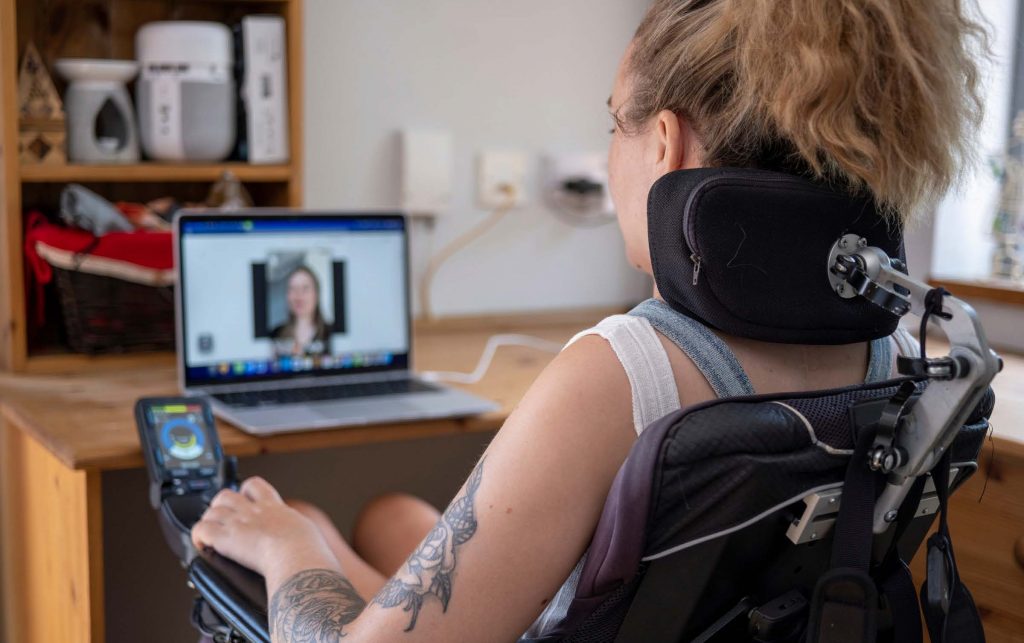Solving The Problem
Dr. Mark Schmeler on the important role data can play in proving effectiveness of assistive technology and establishing best practices and policies

The future of healthcare will be driven by data, experts say, and data has a big role to play in proving the value and efficacy of complex rehabilitation technology equipment and interventions.
“Most payers, including the government, do not put a lot of value on interventions that are not supported with research evidence. Unfortunately, highly customized wheelchairs tend to fall in this dilemma given little has been studied to show the critical role this equipment plays in a person’s ability to function and participate in life,” says Mark Schmeler, Ph.D., who serves as the vice chair for clinical services and policy in the Department of Rehabilitation Science and Technology at the University of Pittsburgh. “Policy makers really need to see that research studies show the value of complex rehabilitation technology versus just taking our word for it. Clinicians are excellent at providing service but do not always have training or experience on how to measure the effectiveness of their work.”
Rather than complain about the problem, Schmeler and the Department of Rehabilitation Science and Technology at the University of Pittsburgh want to be part of the solution. The university recently received a five-year grant from the National Institute on Disability, Independent Living and Rehabilitation Research that will support clinicians with post-doctoral fellowships designed to advance their careers in assistive technology research, as well as practice and policy.
Schmeler, who is an occupational therapist (OT) and an assistive technology professional (ATP), has been providing custom wheelchairs to people with disabilities for the past 34 years. While occupational and physical therapists have long made recommendations according to the “clinical common sense” evidence they’ve developed through their careers, few have been trained about how to more formally gather data and research that could make a difference on a larger scale.
That’s the problem that the new grant and the post-doctoral fellowship seeks to solve.
“This grant will allow us to train more therapists on how to implement research in the clinic while continuing to provide high quality services,” Schmeler says. “More research evidence on the benefits of custom wheelchairs provided under the proper best practices will inform other stakeholders, especially payers, to apply these findings to evidence-based policy.”
While the fellowship will help to train clinicians about assistive technology research and the impact it can have on practice and policy, CRT users also have a role to play. Data gleaned from patients is already helping to shape best practices as well as policies in today’s value-based healthcare system, but more research and data are needed when it comes to assistive technology, according to Schmeler.
“Value is a measure of both cost and quality, and we know what the cost is, but we have very little data and research on the quality side of it,” Schmeler says. “If CRT is going to exist in the new world of value-based care, we need consumers willing to share their feedback in a de-identified manner; suppliers and clinicians who are willing to collect that data in an efficient manner; and clinical investigators with some research training to analyze the data.
“If we cannot provide this information or are unwilling to do so, payers and policymakers will continue as they do now,” Schmeler continues, “by limiting access as we’re not able to provide them with any research evidence that these CRT interventions really work.”
To learn more about Schmeler’s work, check out some previous Let’s Get Moving Journal articles he’s contributed to, including “Right to Repair,” “Data-Driven Change” and “A Better Way to Pay.”
Related Articles
Back to School with Confidence
Navigating the Transition from Summer to School for CRT Users It’s back-to-school season, and the transition from a relaxed summer schedule to the more structured…
CRT Repair: Resolution, Repair & the Heart of the Matter
The Mobility Management podcast interview sheds light on the multifaceted challenges and urgent need for reforms in the repair and maintenance of Complex Rehab Technology…
Tips for Traveling with Your Wheelchair
Planning an upcoming trip? Perkowski, Morris and Lengel all suggested a few steps you can take to protect your wheelchair while flying. To learn more…


